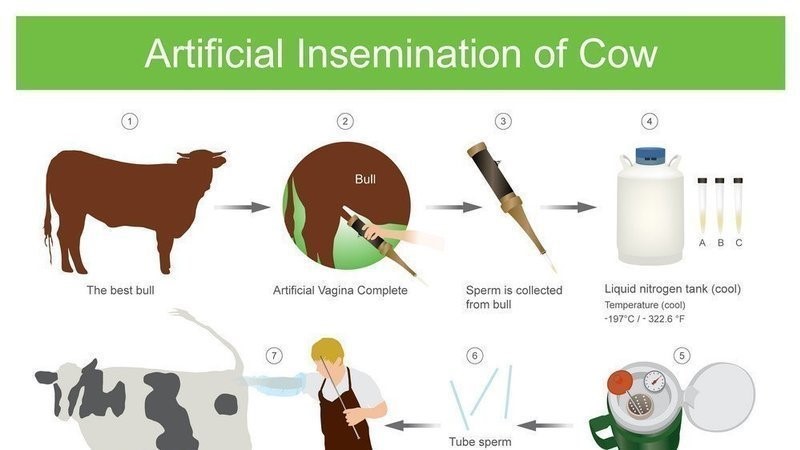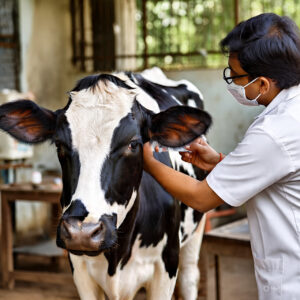Artificial insemination pros and cons are important for every farmer to understand before using this method.
✅ This article explains the artificial insemination pros and cons to help farmers make informed choices.
✅ Knowing the artificial insemination pros and cons can improve herd management and breeding outcomes.
Artificial insemination (AI) is a modern breeding technique. It helps farmers and breeders improve livestock genetics easily. AI has both advantages and disadvantages. This article explores the pros and cons in detail.
What is Artificial Insemination?
Artificial insemination is the process of depositing semen into the female reproductive tract without natural mating. This method helps control breeding more effectively.
Pros of Artificial Insemination
1️⃣ Better Genetic Improvement
AI allows farmers to use superior sires. This improves the genetic quality of animals over generations.
2️⃣ Disease Control
AI helps reduce the spread of sexually transmitted diseases among animals. This ensures healthier herds.
3️⃣ Cost-Effective in the Long Term
While initial setup costs exist, AI reduces the need to maintain many male animals. This saves money over time.
4️⃣ Easy Access to Quality Sires
Farmers can use semen from top bulls located anywhere. This widens breeding options at an affordable cost.
5️⃣ Safety for Animals and Handlers
AI eliminates risks associated with natural mating, especially with large or aggressive animals.
6️⃣ Planned Breeding
AI allows farmers to schedule breeding based on heat detection. This improves success rates and herd management.
7️⃣ Record Keeping Made Easy
AI programs often include detailed records. This helps track breeding performance and animal history.
Cons of Artificial Insemination
1️⃣ Requires Skilled Technicians
AI needs trained staff for semen handling and insemination. Unskilled work may reduce success rates.
2️⃣ Initial Investment
Setting up AI facilities involves cost. Farmers need equipment, storage, and sometimes training.
3️⃣ Heat Detection is Essential
AI success depends on accurate heat detection. Errors here can result in failure of conception.
4️⃣ Limited Natural Selection
AI may reduce natural mating instincts in animals over time. This could impact breed behaviour.
5️⃣ Storage and Handling Challenges
Semen must be stored properly in liquid nitrogen. Mishandling can destroy valuable doses.
6️⃣ Not Always Suitable for All Breeds
Some breeds or species may respond better to natural mating. AI might not work equally for all.
Artificial Insemination vs Natural Mating
AI is safer and more controlled than natural mating. But natural mating offers simplicity and no equipment need. Farmers should weigh the pros and cons based on their herd size and goals.
Tips for Successful Artificial Insemination
✅ Ensure heat detection is accurate and timely.
✅ Use only high-quality semen from trusted sources.
✅ Hire or train skilled technicians for the job.
✅ Maintain hygienic conditions during the process.
✅ Keep detailed breeding records for future planning.
Conclusion
Artificial insemination offers many benefits like genetic progress, disease control, and cost savings. But it comes with challenges like need for skills, investment, and precise heat detection. Farmers should decide based on their resources and herd requirements.
A detailed guide on artificial insemination pros and cons. Understand benefits, challenges, and practical tips for better livestock breeding.




